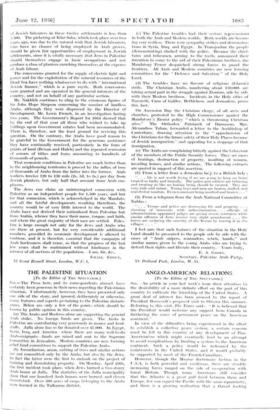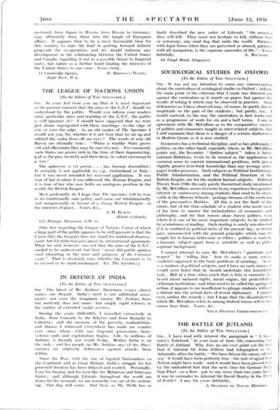ANGLO-AMERICAN RELATIONS [To the Editor of THE SmiycTxroa.d Slit,--An article
in your last week's issue drew attention to the desirability of a more definite effort on the part of this country to cultivate the friendship of the United States. A great deal of interest has been aroused by the report of President Roosevelt's proposed visit to Ottawa this sunnier. Referring to this visit, The Times said : "It is believed that the President would welcome any support from Canada in furthering the cause of permanent peace on the American continent."
In view of the difficulties being experienced in the effort to establish a collective peace system, a certain concern must be felt in this country at any development of Pan- Americanism which might eventually lead to an attempt to avoid complications by limiting a system to the American continent. Such a policy would be welcomed by the isolationists in the United States, and it would l,robabl• be supported by most of the French-Canadians.
However, though the Monroe doctrinaire faction in the U.S.A. is both powerful and vociferous, there arc steadily increasing forces ranged on the side of co-operation with Great Britain. Though niany Americans still consider that the Atlantic is a great gulf fixed between them and Europe, few can regard the Pacific with the same equa ' and there is a growing realisation that a thread leading eastward, from Japan to Russia, from Russia to Germany, may ultimately draw them into the tangle of European affairs. It appears then to be a most favourable time for this country to take the lead in putting forward definite proposals for co-operation, and we should welcome any development in the relationship between the United States and Canada, regarding it not as a possible threat to Imperial unity, but rather as a further bond binding the interests of the United States to our own.—Yours truly,























































 Previous page
Previous page